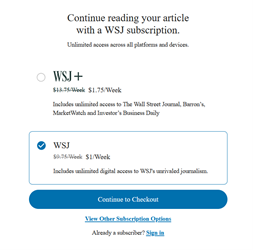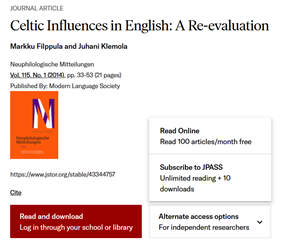Chapter 2: Searching
2.3 Paywalls and access
The open web and paywalls
The open web is composed of everything you can access online without logging in or paying fees. It is the public side of the Internet. The open web is anything that doesn’t have a paywall. A paywall is a system that limits access to content so that users must:
- pay a fee,
- log in (so they can collect data about you), or
- be members of a community (like NKU) that has paid subscription fees for them.
For example, Netflix is a subscription service that keeps its content (streaming movies and television shows) behind a paywall. The majority of scholarly resources are also locked behind paywalls, although they may look slightly different. This means that people across the world are shut out from accessing many scholarly materials. The Open Access movement is a solution to making information like this accessible.
There are actually a few different types of paywalls that you might encounter on the web and/or when doing research. The type of paywall that Netflix uses is called a Hard Paywall, meaning that a paid subscription is required before you are able to access any content. For comparison, some news outlets such as The New York Times use something similar to a Soft Paywall, which allows you to access a set amount of content before prompting you to sign up for a subscription to access more
Did you know?
When you create a free account with a site to get more access, you are providing information about yourself and your online activity. So, while access to a resource may be free, you are still trading something in exchange for this access. Companies collect information about you so they can target ads to your interests based on your activities or sell your information.
Figure 2.2: Examples of what you might see when encountering a paywall: The Wall Street Journal (left) and JSTOR (right)
Open Access
Librarians and scholars are working to develop more scholarly journals that are high-quality yet low-cost or totally free to access, allowing people to use them regardless of their ability to pay. Open access materials don’t require a subscription or login to use. These materials can be books, articles, theses, and even datasets.
Sometimes, an author can share an earlier version of their paywalled content. Before giving up on finding a paper, check if the author made an open access version available with a tool like the Unpaywall application.
NKU Student Access
Not everything is openly available. However, college libraries, like NKU’s W. Frank Steely Library, spend upwards of 1-2 million dollars per year on information access. Students already pay for education expenses, like tuition and textbooks. Getting around paywalls shouldn’t be one of them, so take advantage of the information already available via the library.


